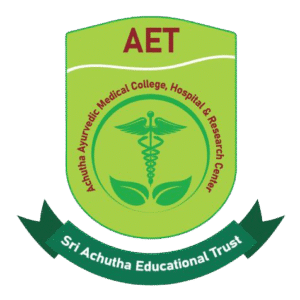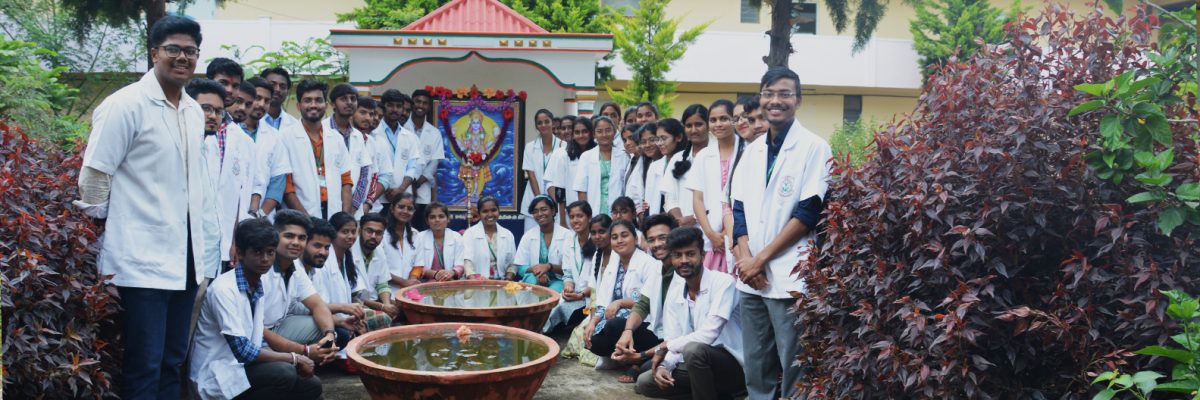
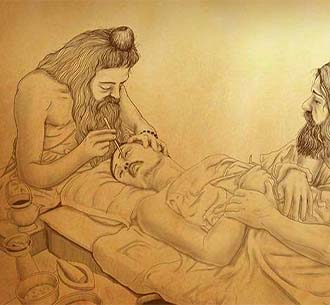
Department of Ayurvedic Scriptures and Fundamental Principles
The Department stands as a devoted bastion for the exploration and propagation of Samhita and Siddhanta the timeless scriptures that encapsulate the foundational tenets and philosophical underpinnings of Ayurvedic disciplines.
It engages in fostering deep-rooted comprehension and practical assimilation of classical concepts, particularly in the realm of diagnosis and therapeutic planning. With a focus on cultivating discernment and refined decision-making, the department encourages intellectual sharpness and clinical intuition in applying ancient principles to modern healthcare challenges.
Here, students are not only immersed in the textual richness of Ayurvedic doctrine but are also guided through its real-world application. Scientific interpretation is paired with experiential learning, ensuring that each learner gains a holistic grasp melding theory with tangible demonstration across every dimension of Ayurvedic science.
Department of Rachana Shareera
This department serves as the cornerstone of foundational medical education, focusing on the intricate architecture of the human body. As a crucial pillar of Ayurvedic learning, Rachana Shareera provides the structural blueprint essential for understanding the deeper philosophies of diagnosis and therapeutic intervention.
A thorough grasp of applied anatomy empowers students to conduct preliminary evaluations and form insightful clinical impressions. The clarity gained through the study of organs, tissues, and systemic connections significantly enhances the efficacy and precision of treatment protocols.
To enrich this academic journey, the department is equipped with a meticulously curated anatomical museum and a fully functional dissection hall—designed to offer tactile, visual, and experiential learning. These facilities serve as living classrooms where theoretical concepts are brought vividly to life, anchoring abstract knowledge in physical reality.
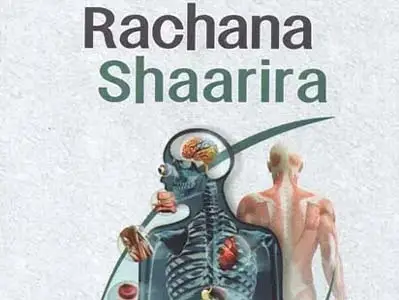
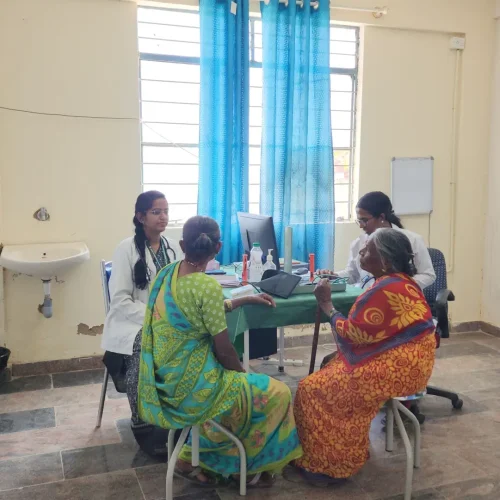
Department of Kriya Shareera
The Department of Kriya Shareera delves into the intricate realm of human physiology through the lens of Ayurveda, exploring the dynamic functions of the body and mind. Rooted in the philosophy that the human organism is a symphony of elemental forces, this discipline emphasizes the balance of these core components to sustain life and vitality.
‘Kriya’ signifies movement, function, or action—and it is only through the harmony of the body’s elemental building blocks that these actions manifest effectively. Understanding these physiological processes is fundamental to the study of Ayurveda, forming the bedrock upon which the science of diagnosis and treatment is built.
Recognizing the normal state of bodily functions is key to identifying imbalances and pathologies. To support this vital learning, the department boasts a fully-equipped physiology laboratory and a comprehensive museum, offering students a rich, hands-on environment to explore the living principles of Ayurvedic physiology.
Department of Agada Tantra
Agada Tantra, a vital branch among the eight core disciplines (Ashtanga) of Ayurveda, is devoted to the science of toxicology. This field explores the profound connection between health and toxins, both natural and man-made, offering time-honored strategies to counteract their harmful impact on the human body.
The department covers the identification, symptoms, and treatment of poisoning caused by venomous creatures such as snakes, scorpions, and insects. It also addresses the more subtle yet equally dangerous toxins accumulated through modern dietary habits such as excessive intake of processed, adulterated, or chemically laden foods leading to chronic internal toxicity.
This branch equips students with the knowledge to understand the physiological disruptions caused by various toxins and prepares them with effective antidotal therapies rooted in Ayurvedic wisdom.
With a focus on prevention, diagnosis, and detoxification, the Department of Agada Tantra offers a holistic approach to managing toxic threats. It is supported by a well-equipped laboratory and instructional resources, enabling learners to gain deep practical and theoretical proficiency in the field.
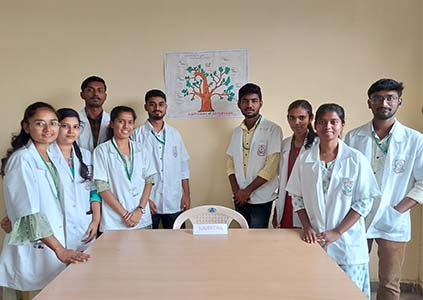
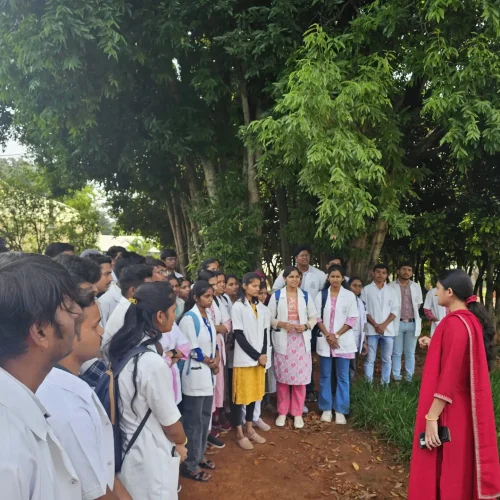
Department of Dravya Guna Vignana
The Department of Dravya Guna Vignana is dedicated to the in-depth study of medicinal botanicals and their pivotal role in holistic healing. It delves into the pharmacognosy, identification, classification, and therapeutic profiling of herbs and natural substances used in Ayurveda. Medicinal plants serve not only as curative tools but also as essential components in maintaining equilibrium and vitality through diet and medicine. The department’s comprehensive museum offers an enriching collection of herbal specimens, enhancing students’ understanding of their properties, actions, and traditional applications—equipping future Vaidyas with the skills to harness nature’s pharmacy effectively.
Department of Swastha Vritta
The Department of Swastha Vritta promotes the preventive and promotive aspects of Ayurveda, focusing on health preservation through disciplined daily and seasonal regimens, ethical living, and yogic practices. Emphasizing Dinacharya, Ritucharya, Sadvrutta, and Achara Rasayana, this department trains students to cultivate and advise on lifestyle strategies that prevent illness and foster vibrant health. With a strong foundation in public health and wellness, students are empowered to be advocates of sustainable, natural living through Ayurveda.
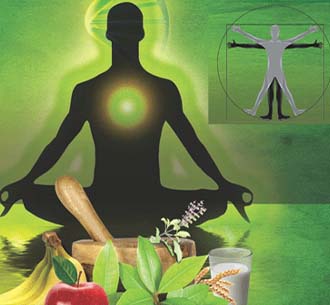

Department of Roga Nidana & Vikriti Vignana
The Department of Roga Nidana & Vikriti Vignana explores the diagnostic foundations of Ayurveda, equipping students with the knowledge to decipher the origins, progression, and manifestations of diseases. This branch focuses on Nidana (causative factors), Samprapti (pathogenesis), Lakshana (clinical features), and various diagnostic techniques. With an integration of Ayurvedic diagnostics and essential modern investigations, the department helps future practitioners build a comprehensive, evidence-based approach to disease assessment and clinical decision-making.
Department of Rasa Shastra & Bhaishajya Kalpana
This department anchors the ancient alchemy of Ayurveda transforming natural resources into potent, personalized formulations. Focused on herbo-mineral preparations, Rasa Shastra & Bhaishajya Kalpana specializes in the purification, combination, and transformation of metals, minerals, and herbs into safe and effective medicines. The department emphasizes region-specific herbal usage and tailors formulations to individual constitutions, ensuring maximum efficacy with minimal dosage. Students gain hands-on expertise in traditional and contemporary methods of medicine preparation, aligned with the standards of safety, potency, and therapeutic utility.
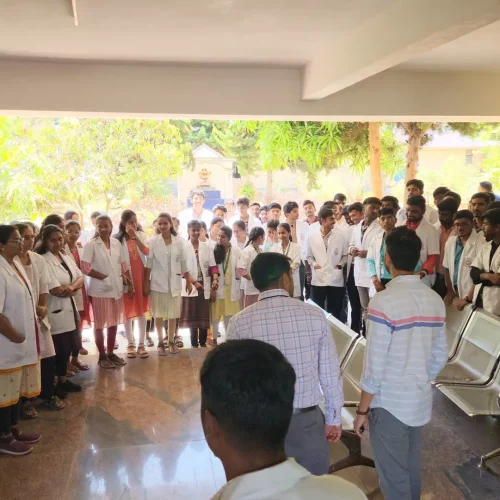
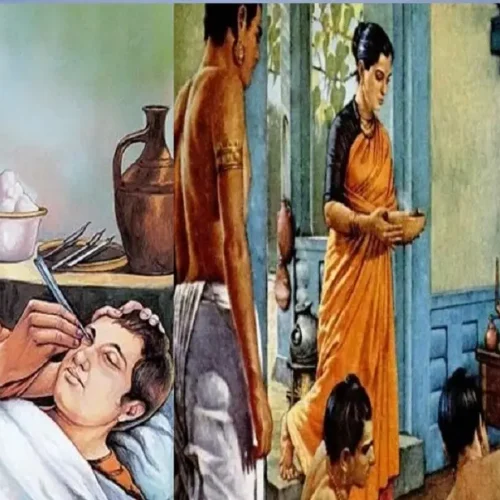
Department of Shalya Tantra
The Department of Shalya Tantra revives and refines the ancient art of Ayurvedic surgery, rooted in the legendary teachings of Acharya Sushruta. Focused on surgical precision and swift recovery, this department covers a vast array of interventions from managing fractures, wounds, tumors, and abscesses to obstetric complications and even reconstructive surgery. Shalya Tantra provides an effective path for conditions requiring urgent attention, offering an alternative when internal medicine alone is insufficient. A legacy of centuries-old surgical brilliance is brought alive through modern techniques and experiential learning, ensuring students master both classical and contemporary surgical methodologies.
Department of Prasooti Tantra & Striroga
This department stands as a pillar of Ayurvedic insight into women’s health, encompassing the unique disciplines of gynecology and obstetrics. Students are trained in traditional and contemporary practices, using specialized visual aids, anatomical models, simulation mannequins, and demonstrative surgical tools for immersive, hands-on learning.
A dedicated departmental library houses a robust collection of classical Ayurvedic manuscripts and modern medical texts, offering a holistic and interdisciplinary reference base for academic and clinical enrichment.
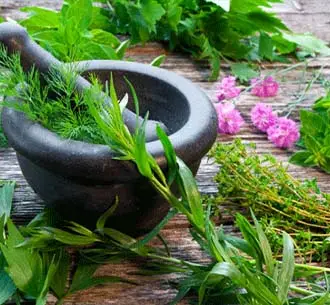

Department of Kayachikitsa
Renowned as the internal medicine wing of Ayurveda, the Department of Kayachikitsa is committed to the art of diagnosing and managing a wide spectrum of systemic disorders. Focused on harmonizing the body’s internal dynamics, it emphasizes herbal pharmacology, disease pathophysiology, lifestyle reform, and personalized therapeutic plans. Students are immersed in clinical practices ranging from chronic illness care to acute therapeutic intervention—while being mentored by seasoned physicians. The department also incorporates Panchakarma Rasayana (rejuvenation), and Vajikarana (vitality enhancement) therapies for a 360-degree healing model. Its mission extends beyond treatment—to cultivate researchers and clinicians capable of globalizing Ayurveda through evidence-backed, integrative healthcare solutions
Department of Panchakarma
This department safeguards the essence of Ayurvedic detoxification and rejuvenation Panchakarma. With a curriculum combining deep theoretical grounding and applied therapies, students gain mastery in cleansing procedures that restore internal equilibrium.
Utilizing well-equipped therapy units and guided by skilled practitioners, this department empowers learners to refine their expertise in five cornerstone therapies:
Vamana (therapeutic emesis)
Virechana (purgation)
Anuvasana Basti (oil enema)
Niruha Basti (decoction enema)
Nasya (nasal purification)
These protocols are utilized not only as curative strategies but also as preparatory regimens for rejuvenation (Rasayana) and aphrodisiac (Vajikarana) therapies, ensuring deep-rooted healing and systemic renewal.


Department of Kaumarabhritya
Kaumarabhritya is the revered Ayurvedic branch focused on comprehensive child health from prenatal nurturing to adolescent development. It emphasizes an integrative, preventive, and curative framework for pediatric care.
Key highlights include:
Neonatal & Infant Nurturing: Guided care through Navjat Shishu Paricharya, ensuring proper feeding, oil massage, and hygienic practices.
Swarna Prashana: A time-honored immunization ritual using gold, honey, and potent herbs to boost cognition, immunity, and vitality.
Pediatric Disease Care: Ayurvedic interventions for childhood disorders—digestive ailments, respiratory conditions, skin diseases, and developmental anomalies.
Herbal Nutrition & Immunomodulation: Formulations like Lehana enhance resistance and fortify bodily strength.
Mental & Emotional Growth: Emphasis on Medhya Rasayanas to cultivate memory, focus, and emotional resilience.
Fusion with Modern Pediatrics: Offers a balanced synergy with allopathic pediatric care, especially in lifestyle management and immune support.
Kaumarabhritya continues to hold significance in cultivating naturally resilient, healthy generations through holistic, age-old principles.
